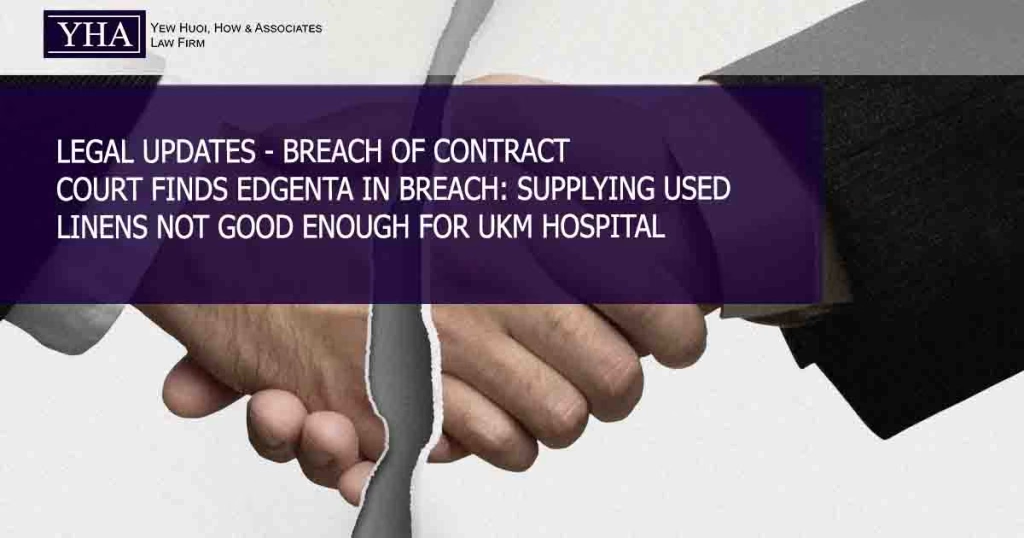1. Summary and Facts
In Universiti Kebangsaan Malaysia v Edgenta Facilities Management Sdn Bhd [2025] 11 MLJ 783, UKM entered a laundry services contract with Edgenta for PPUKM, requiring Edgenta to maintain a “five par” linen level – laundry service contract. UKM claimed Edgenta failed to supply new linens and imposed penalties of RM3,996,344.47 based on missing items, price per item, and days delayed. Edgenta argued the contract did not specify “new” linens, supplied a mix of linens, disputed the penalty formula, and alleged UKM increased linen requirements without notice, counterclaiming RM3.64 million for wrongful deductions.
2. Legal Issues
• Whether the defendant was contractually obligated to supply new linens rather than used or recycled linens.
• Whether the defendant’s counterclaim for allegedly wrongful deductions had any basis or merit.
• Whether the plaintiff’s penalty calculation method and amount were valid.
3. Court’s Findings
• The High Court allowed UKM’s claim for RM3,996,344.47 with interest at 5% per annum from the date of filing until full settlement and dismissed Edgenta’s counterclaim with costs.
• It was held that when a dispute arises from a contract, the entire contract must be interpreted considering its factual background, commercial purpose, and business nature to determine the parties’ intention using an objective approach.
• Although the contract did not expressly include the word “new,” the Court found that both parties intended and understood that only new linens were required.
• The Court admitted extrinsic evidence under proviso (b) to section 92 of the Evidence Act 1950, holding that parol evidence was admissible to clarify a contractual silence where it was not inconsistent with the written terms.
• Key documents, including meeting minutes and correspondence, showed that the defendant had repeatedly acknowledged its obligation to supply “new linens” and sought extensions of time to meet this requirement.
• The penalty formula was valid, as the phrase “until the five par requirements is fulfilled” clearly included a time element.
• The counterclaims by the Defendant lacked evidence and appeared tactical after receiving the Plaintiff’s penalty demand.
4. Practical Implications
This decision affirms several important legal principles including:
• Even if a contract is silent, courts may infer intent from surrounding evidence and commercial sense.
• Parol evidence rule allows clarification of silent terms (s 92(b) Evidence Act 1950).
• Penalty clauses are enforceable if they serve a legitimate commercial purpose and are reasonable.

